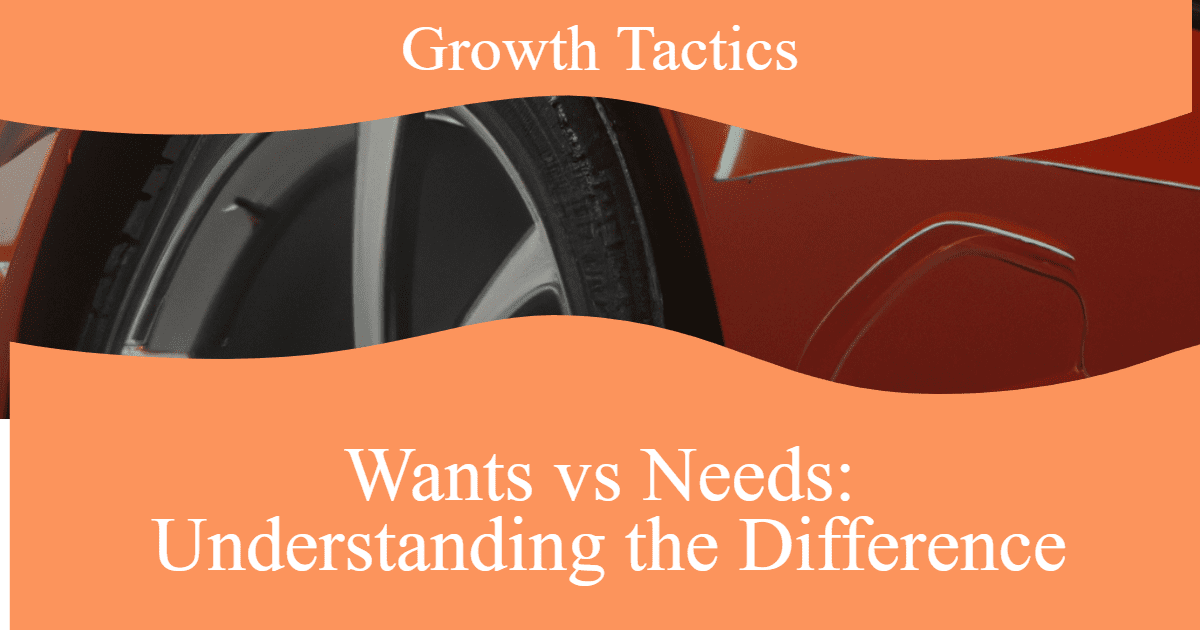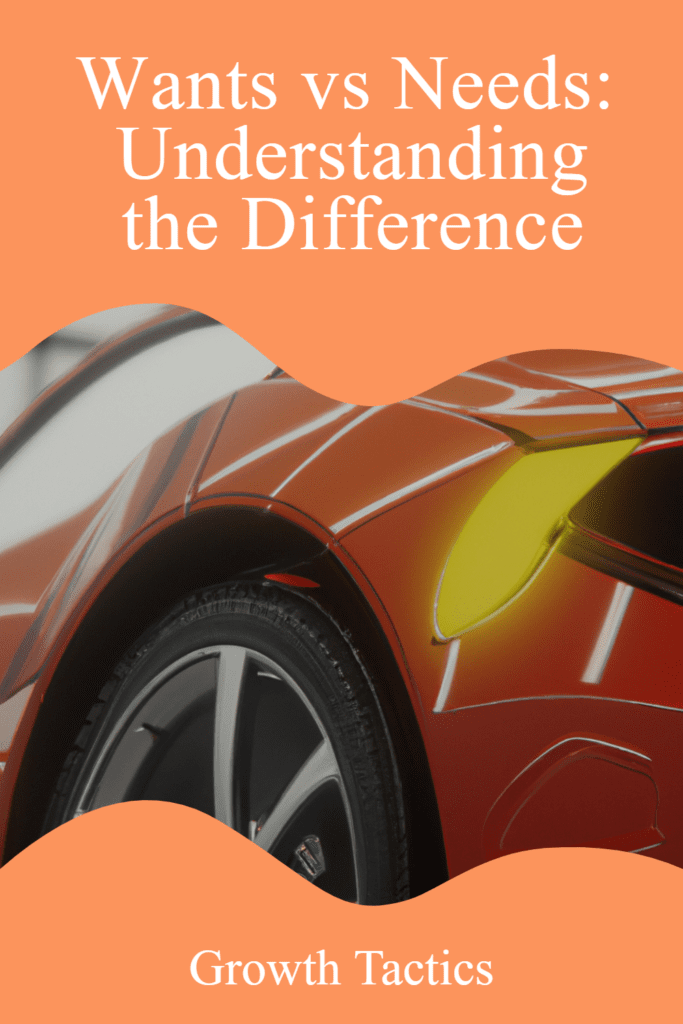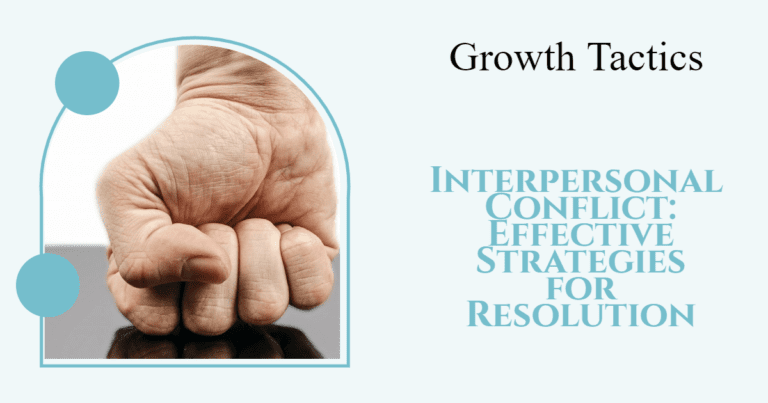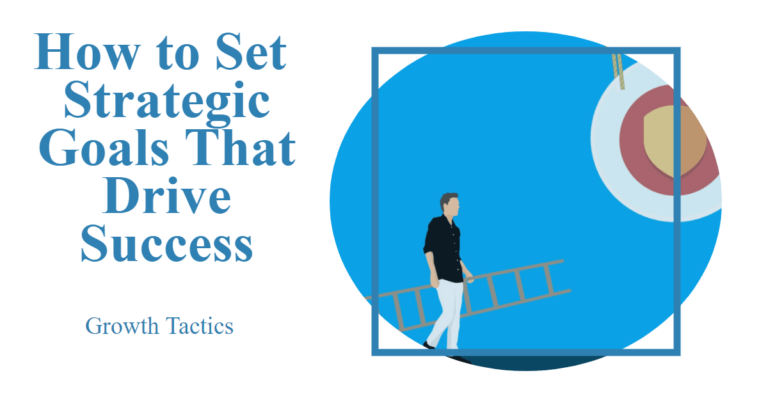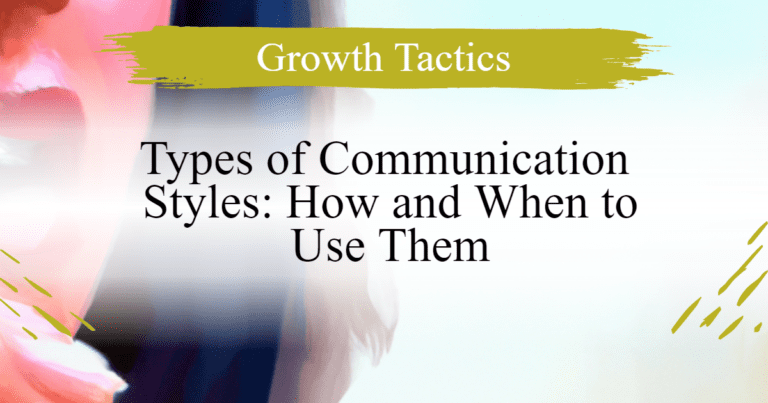Confusing wants with needs can lead you down a tough road. It can drain your money, time, and energy, leaving you unfulfilled and stressed. Understanding priorities is key. You need to know what’s essential to succeed. The same goes for life. Mixing up wants and needs creates clutter and chaos.
But don’t worry. This article is here to help you clear that up. It’ll guide you through recognizing your true needs and how to keep wants in check. You’ll find your own way, with purpose in every step. This clarity will help you lead a more focused, balanced, and happy life.
Jump To Section
What Are Wants and Needs?
Wants are things you want but don’t need. Needs are things you need to survive. For example, if you’re hungry and there’s no food around, then eating something would be a necessity, it would be a need.
On the other hand, if your friend invited you over for dinner on their birthday and they made spaghetti, then having some extra garlic bread would be nice but if they didn’t provide any, you won’t die of starvation.
The Role of Wants and Needs in Decision Making
When you make a decision, it’s important to consider the impact that your wants will have on your needs. Your wants are what make life more enjoyable. They are things that bring pleasure and happiness into our lives.
For example, if someone asks you whether they should buy a new car or keep their old one, their need might be transportation but their want could be comfort or excitement (or both). It’s important to take these things into account when making decisions because they can affect how happy we are with our choices later on down the road!
The Benefits of Understanding the Difference between Wants and Needs
There are numerous benefits to understanding the difference between wants and needs. For example, if you know that you want a car but don’t need one, it’s easier to make smart financial decisions when faced with purchasing one. The same goes for housing and other expenses that may be necessary but not necessarily desired.
Understanding the difference between wants and needs also provides mental clarity. Knowing what we truly want helps us prioritize our time and energy better, so we can spend less time worrying about things we don’t need or want to focus on what matters most.
It also gives us peace of mind knowing that there are some things out there that just aren’t worth having and this knowledge will help keep us from making unnecessary purchases or getting into debt because we’ve bought into advertising hype about products being “essential” or “must-haves”.
Tips for Distinguishing Between Wants and Needs
One of the most important aspects of understanding the difference between wants and needs is being able to distinguish between the two. Here are some tips to help you differentiate between wants and needs:
Identify Your Priorities
First things first, clarify your priorities. Know what’s most important to you and what you truly value. When your priorities are crystal clear, it becomes easier to see the line between what you need and what you simply wish for.
Understand Your Goals
Your goals are your compass. Ask yourself if a purchase or decision aligns with your goals. If you’re saving for a house, for instance, buying a new car might derail that dream. Always view your actions through the lens of your long-term goals.
Practice Self-Control
Self-control is your ally here. Resist the urge to make impulsive buys based on fleeting wants. Before making a purchase, pause and ask yourself: Is this something I really need, or is it just something I want right now?
Manage Your Money Wisely
Financial wisdom is key. Create a budget and stick to it. Save money for future needs and unexpected emergencies. When your finances are in order, distinguishing wants from needs becomes second nature.
Manage Your Time Wisely
Time is your most valuable resource. Prioritize your time based on what’s important to you and what helps you achieve your goals. Effective time management strengthens your ability to focus on needs over wants.
By following these strategies, you’ll not only better understand the distinction between wants and needs but also make informed decisions that align with your personal values and goals. Embrace your individuality and take purposeful action. The path to a focused, balanced, and fulfilling life starts here.
The Role of Self-Control
Self-control plays a crucial role in distinguishing between wants and needs. Without self-control, it becomes easy to give in to our desires and make impulsive purchases that do not align with our needs or goals.
One of the most effective ways to exercise self-control is to develop awareness of our behaviors and habits. We need to be aware of our emotional triggers that lead us to make impulsive decisions based on our wants rather than our needs. Once we identify these triggers, we can take steps to avoid or manage them.
Another way to exercise self-control is to set clear boundaries for ourselves. This means creating a budget and sticking to it, as well as setting limits on our time and energy. By setting boundaries, we can prioritize our needs and focus on what is most important to us.
It’s important to note that exercising self-control is not about denying ourselves the things we enjoy or need. Rather, it’s about making informed decisions that align with our values and goals. By exercising self-control, we can make better financial decisions and achieve our goals in the long run.
The Role of Self-Awareness
Self-awareness is essential in distinguishing between wants and needs. It’s the ability to recognize our own thoughts, emotions, and behaviors, which helps us understand our priorities, values, and goals.
Self-awareness can help us identify our true needs and differentiate them from our wants. By understanding our needs, we can make better decisions that align with our priorities and goals. For example, if we are aware that our health is our top priority, we can make choices that support our physical and mental well-being.
In addition, self-awareness helps us understand our strengths and weaknesses, which can help us make better decisions in different areas of our lives. For example, if we are aware of our financial weaknesses, we can take steps to manage our finances better and avoid impulsive purchases.
Developing self-awareness requires introspection and reflection. It’s important to take time to reflect on our thoughts, emotions, and behaviors, and identify patterns that can help us understand ourselves better. This can be done through journaling, meditation, or seeking feedback from others.
The Role of Money
Money plays a significant role in distinguishing between wants and needs. It’s a finite resource that we use to meet our basic needs and fulfill our desires. Understanding the role of money can help us make better decisions that align with our priorities and goals.
Money is essential for meeting our basic needs, such as food, shelter, and clothing. These needs are non-negotiable and require us to allocate a significant portion of our income towards them. However, once we have met our basic needs, our spending decisions become more discretionary.
Money can also be used to fulfill our desires and wants. These are the things that we crave and desire, but are not essential to our survival. For example, a luxurious vacation or a new car may be desirable, but they are not necessary for our survival.
Understanding the role of money is crucial in distinguishing between wants and needs. It helps us prioritize our spending decisions and allocate our resources towards the things that matter most to us. By setting clear financial goals and creating a budget, we can ensure that our spending aligns with our priorities and values.
It’s important to note that money alone does not guarantee happiness or fulfillment. While money can help us meet our basic needs and fulfill our desires, true happiness and fulfillment come from other sources as relationships, personal growth, and purpose.
The Role of Time
Time is a finite resource that we all have in equal measure. It’s a valuable commodity that we use to pursue our goals, build relationships, and accomplish our tasks. Understanding the role of time can help us make better decisions that align with our priorities and goals.
Time is essential for achieving our goals and aspirations. It’s the currency that we use to invest in ourselves, learn new skills, and pursue our passions. By prioritizing our time, we can ensure that we are allocating it towards the things that matter most to us.
Time is also crucial for building relationships. Our relationships require time and effort to nurture and grow. By investing our time in our relationships, we can build stronger connections with those around us and create meaningful experiences.
Furthermore, time is crucial for accomplishing our tasks and responsibilities. We have a finite amount of time to complete our tasks and meet our deadlines. By managing our time effectively, we can ensure that we are using it efficiently and accomplishing our goals.
Understanding the role of time is crucial in distinguishing between our priorities and distractions. By prioritizing our time, we can focus on the things that matter most to us and avoid getting sidetracked by distractions.
It’s important to note that time is a limited resource, and we need to use it wisely. While we cannot control the amount of time we have, we can control how we use it. By setting clear goals, creating a schedule, and eliminating distractions, we can ensure that our time is spent on the things that matter most to us.
Conclusion
In conclusion, understanding the difference between wants and needs is crucial for living a happy and fulfilling life. While our wants can often seem tempting and alluring, they might not be essential for our happiness and well-being. On the other hand, our needs are the things that we require to survive and thrive.
By prioritizing our needs and recognizing that our wants are just desires, we can create a life that is more aligned with our values and goals. We can focus on the things that are truly important to us, such as our health, relationships, and personal growth.
Remember, you have the power to choose what you want in life. But it’s essential to understand that your wants may not always align with what you need. By prioritizing your needs and investing your time, energy, and resources towards them, you can create a life that is more meaningful and fulfilling.
So, take a step back and reflect on your wants and needs. Ask yourself what truly matters to you and what you need to live a happy and fulfilling life. With dedication, hard work, and a clear vision, you can achieve anything you set your mind to. So go out there and make the most of what you have. The world is waiting for you to shine!
Did you enjoy this article on wants vs needs? Please share and subscribe below.

